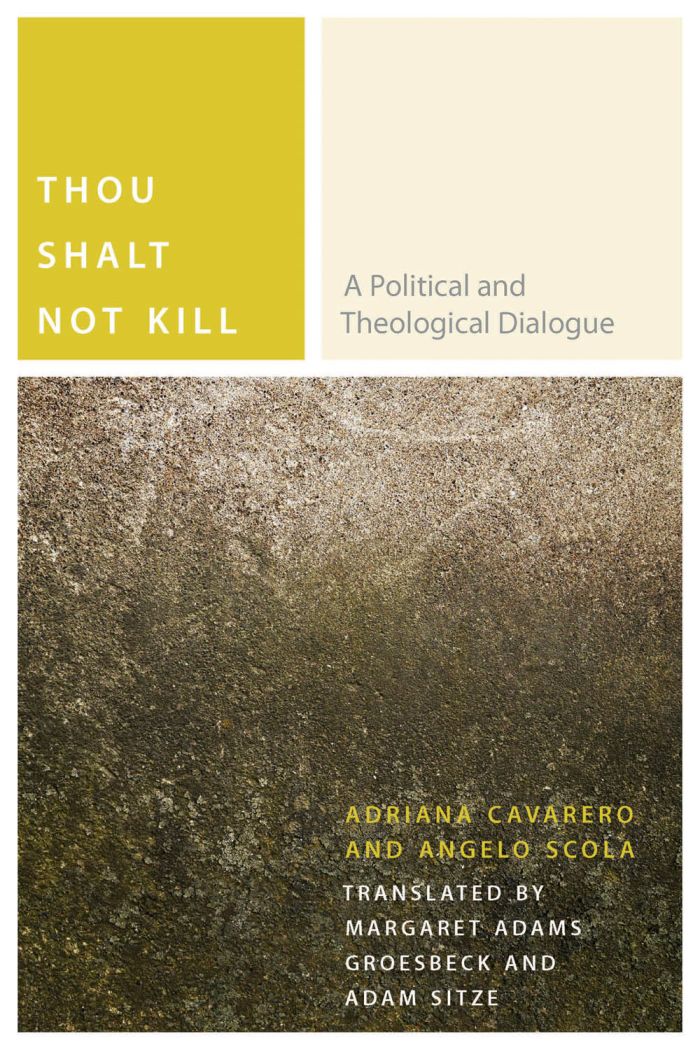Thou Shalt Not Kill
A Political and Theological Dialogue

This book can be opened with

In this fascinating and rare little book, a leading Italian feminist philosopher and the Archbishop of Milan face off over the contemporary meaning of the biblical commandment not to kill.
The result is a series of erudite and wide-ranging arguments that move from murder and suicide to just war and drone strikes, from bioethics and biopolitics to hermeneutics and philology, from Theodor Adorno and Max Horkheimer to Hannah Arendt and Michel Foucault, from Torah and Scripture to art and literature, from the essence of human dignity and the paradoxes of fratricide to engagements with Levinasian ethics.
Less a direct debate than a disputation in the classical sense, Thou Shalt Not Kill proves to be a searching meditation on one of the unstated moral premises shared by otherwise bitterly opposed political factions. It will stimulate the mind of the novice while also reminding more advanced readers of the necessity and desirability of thinking in the present.
“Thou Shalt Not Kill represents an exceptionally original contribution to the study of contemporary Western culture seen from both a religious and a secular
feminist perspective.”
The remarkable dialogue Scola and Cavarero between demonstrates the ethical, theological, and the political stakes of the prohibition of killing. Interpreting the prohibition of murder in the context of Levinas’s ethics, Scola proposes what Cavarero calls an 'absolutist' interpretation of such prohibition and argues for its applicability both to suicide and to reproduction. By contrast, Cavarero brilliantly demonstrates the incoherence of such an interpretation, particularly in the context of new reproductive technologies, medical technologies, and modern warfare. Instead of ethical relationality, such an absolute application of the prohibition of killing, all too often coexisting with the justifications of just or preemptive war, leads to the valorization of impersonal biologism. This is an indispensable book for anyone interested in the contemporary debates about ethics, biopolitics, and bioethics.

